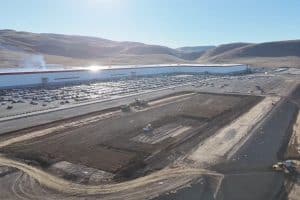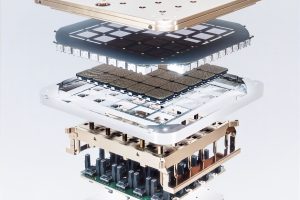- 🚗 China begins issuing licenses for autonomous driving software testing to nine automakers.
- 📅 Test approvals announced ahead of Tesla’s launch of Full Self-Driving (FSD) in China this year.
- 💼 The automakers granted approval include Nio, BYD, Changan Auto, GAC, SAIC, BAIC BluePark, China FAW Group, SAIC Hongyan, and Yutong Bus.
- 🛣️ Approved automakers can conduct testing on certain restricted roads as part of China’s pilot program.
- 🏢 Four Chinese ministries deliberated on the approvals: MIIT, Ministry of Transport, Ministry of Housing and Urban-Rural Development, and Ministry of Public Security.
- 📊 The pilot program aims to generate data for legislative, regulatory, and technical standards development.
- 🚀 Tesla received tentative approval for its FSD Supervised in China, which requires constant driver attention.
- 🕵️ Tesla is actively registering its FSD software in China and expects to launch this year.
- 🚖 Tesla plans to launch a robotaxi platform based on FSD in August, along with a ride-sharing platform.
China has taken a significant stride in the realm of autonomous driving by issuing licenses to nine leading automakers to test advanced autonomous driving software. This move arrives ahead of Tesla’s much-anticipated launch of Full Self-Driving (FSD) in China this year. This blog post explores the implications of China’s approval, the companies involved, and the broader impact on the automotive industry.
China’s Autonomous Driving Approval: Setting the Stage
On June 4, 2024, the Chinese Ministry of Industry and Information Technology (MIIT) announced the approval of licenses for nine automakers to test Level 3 autonomous driving systems. This step marks a notable advancement in the autonomous vehicle industry, especially given the involvement of several prominent companies. The nine automakers are:
- Nio
- BYD
- Changan Auto
- GAC
- SAIC
- BAIC BluePark
- China FAW Group
- SAIC Hongyan
- Yutong Bus
These companies can now conduct testing on certain restricted roads as part of a structured pilot program aimed at enhancing autonomous driving technology.
The Collaborative Effort behind the Approvals
The approvals result from comprehensive deliberation by four Chinese ministries:
- Ministry of Industry and Information Technology (MIIT)
- Ministry of Transport
- Ministry of Housing and Urban-Rural Development
- Ministry of Public Security
This collaboration underscores the significant governmental support for advancing autonomous driving technologies. The pilot program’s objectives include generating valuable data to support legislative, regulatory, and technical standards development.
Implications for the Automotive Industry
1. Data-Driven Insights
The data collected from the pilot program will be instrumental in shaping the future of autonomous driving. It will provide comprehensive insights into real-world applications, safety considerations, and operational challenges.
2. Legislative and Regulatory Framework
By facilitating a structured testing environment, China aims to develop a robust legislative and regulatory framework. This approach will ensure that autonomous driving technologies are integrated safely and efficiently into the transportation ecosystem.
3. Global Competitive Edge
China’s proactive stance in autonomous driving creates a competitive edge over other nations, potentially positioning it as a global leader in the automotive tech industry. The involvement of companies like Nio and BYD, which have already made significant strides, further consolidates this position.
Tesla’s Role in China’s Autonomous Future
Tesla’s tentative approval for its FSD Supervised highlights the company’s strategic focus on China’s burgeoning market. While Tesla’s FSD is currently classified as a Level 2 system, requiring constant driver attention, it has the potential to evolve.
1. FSD Launch Expectations
Tesla is actively registering its FSD software in China, with plans to launch it within the year. This move is pivotal as it may set the benchmark for autonomous driving technologies in the region.
2. Introduction of Robotaxi and Ride-Sharing Platforms
In addition to the FSD launch, Tesla plans to introduce a robotaxi platform in August and a ride-sharing platform shortly after. These innovations will revolutionize urban mobility, providing efficient and sustainable transportation alternatives.
3. Strategic Market Penetration
By establishing a foothold in China, Tesla taps into one of the largest and most dynamic automotive markets. This strategic penetration will foster competitive advancements and elevate consumer expectations regarding autonomous driving capabilities.
Looking Forward: The Future of Autonomous Vehicles in China
China’s approval of autonomous driving tests for nine automakers represents just the beginning of a transformative journey. Here’s what we can expect going forward:
1. Acceleration in Technological Development
Continuous testing and data analysis will accelerate advancements in autonomous software, making autonomous vehicles more reliable and efficient.
2. Improvement in Infrastructure
To support autonomous driving, there will likely be significant investments in infrastructure, including smart roads and communication systems.
3. Public Perception and Adoption
As autonomous vehicles become more prevalent on the roads, public perception will shift towards wider acceptance, eventually leading to mainstream adoption.
4. Economic Impacts
The rise of autonomous vehicles will spur economic growth through new business models, job creation in tech and automotive sectors, and increased efficiencies in logistics and transportation.
Conclusion
China’s recent approvals for autonomous driving software testing signify a monumental step in integrating advanced technologies into the automotive sector. The collaborative effort by ministries and the strategic involvement of leading automakers underscore the nation’s commitment to pioneering smart transportation solutions. With Tesla’s anticipated contributions and the promising pilot programs, China is well on its way to becoming a leader in autonomous vehicle innovation. This progress not only promises safer and more efficient roads but also catalyzes economic and technological growth on a global scale.





